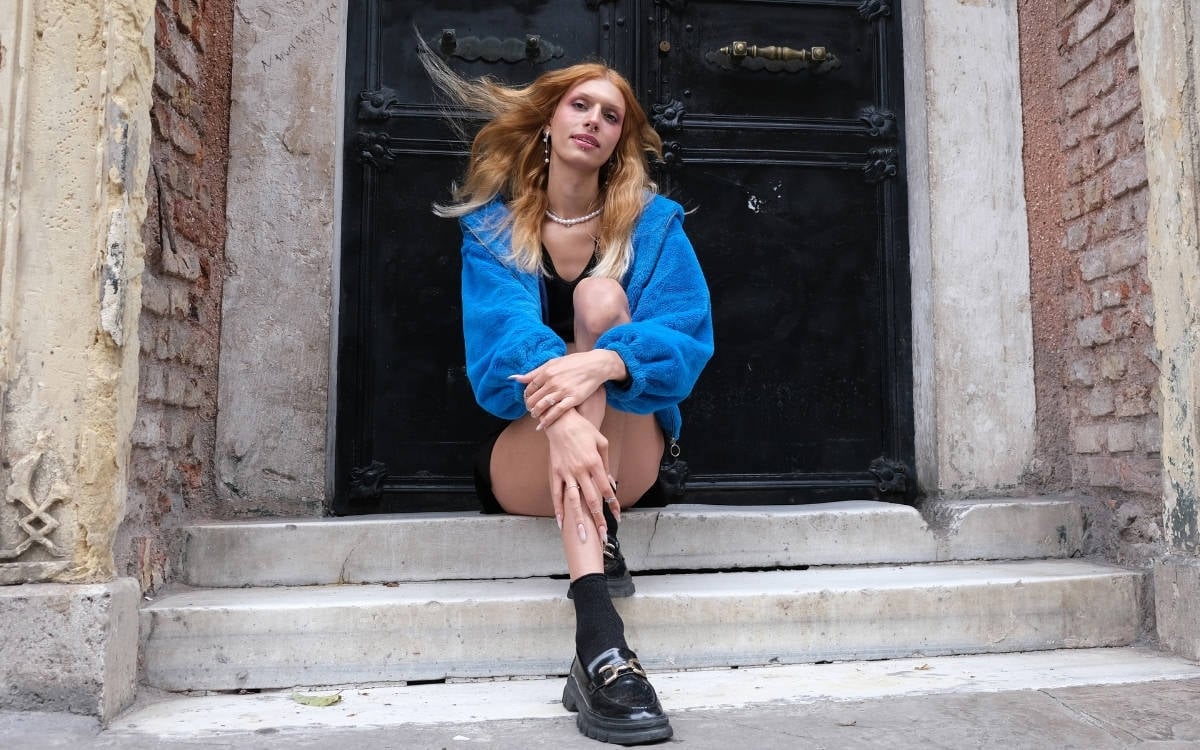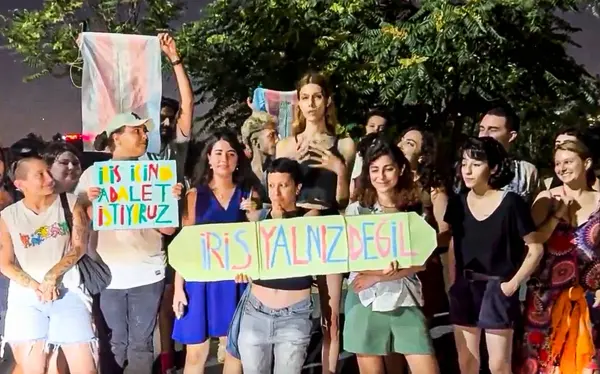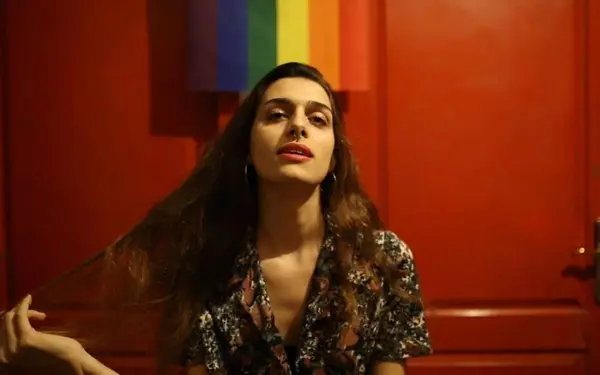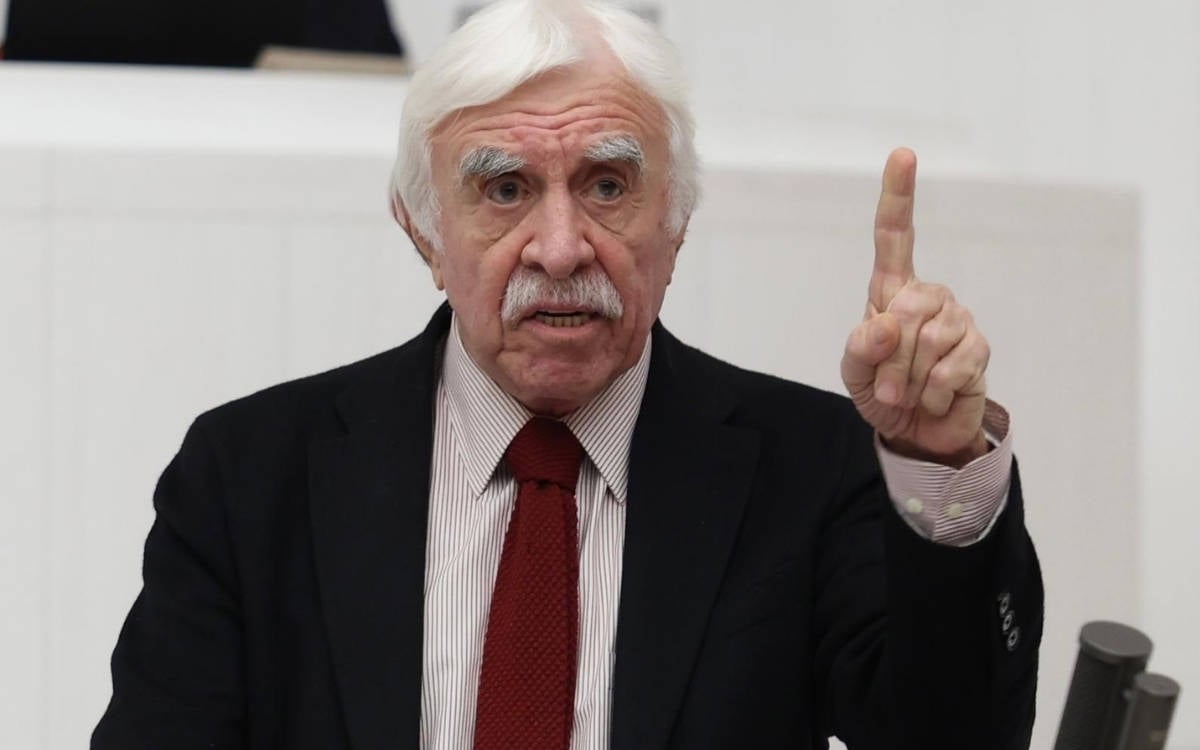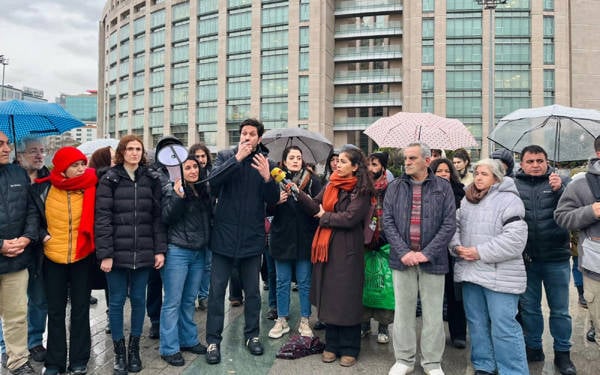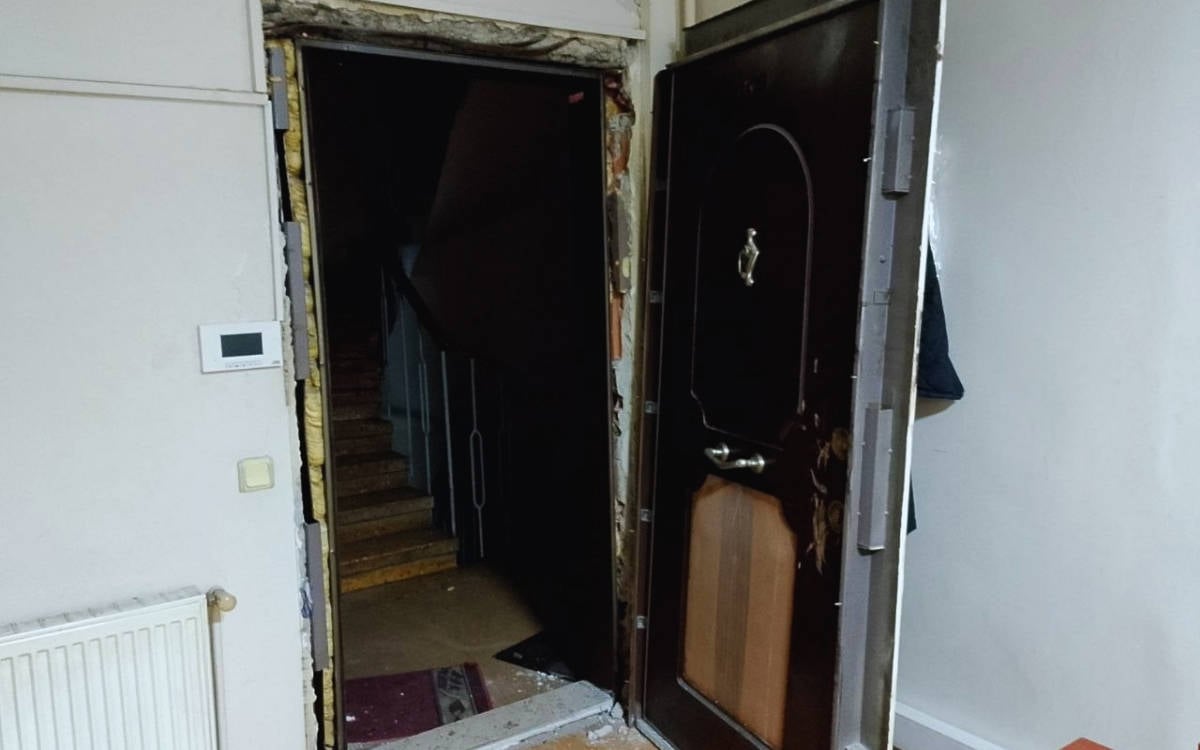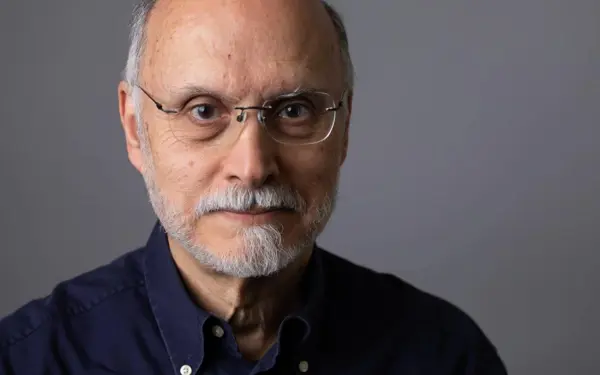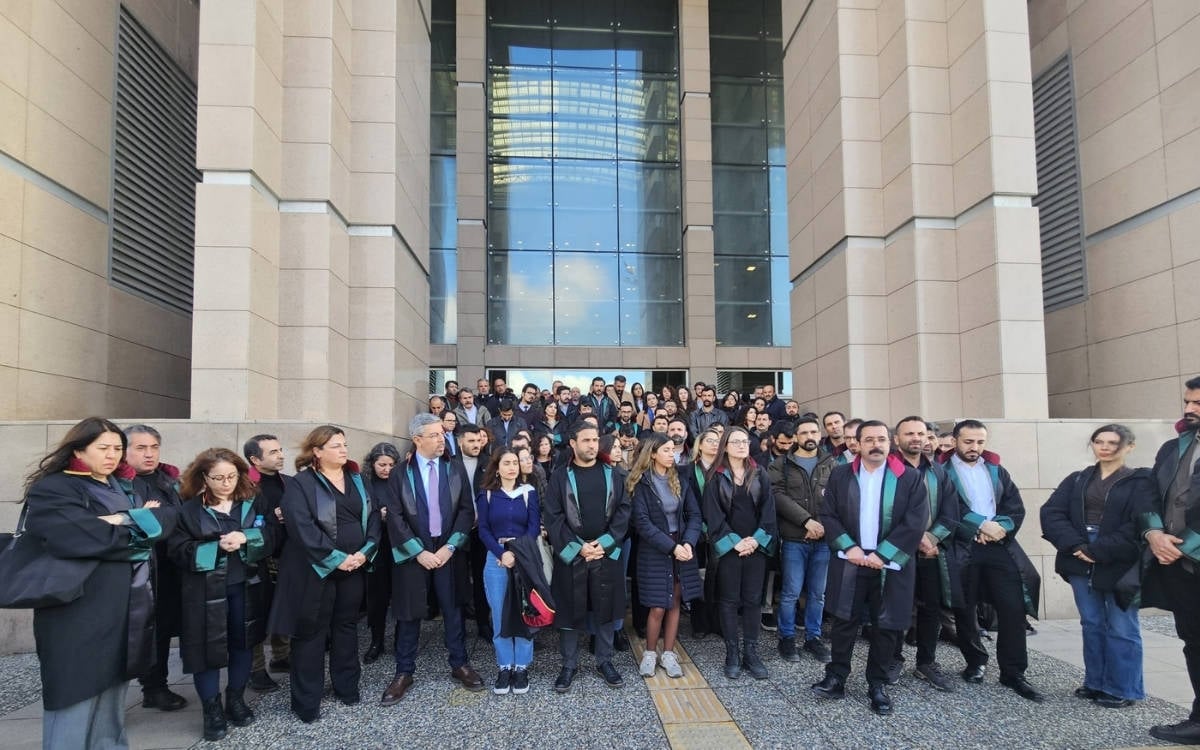LGBTI+ activist İris Mozalar was detained on Jul 10 in a raid on her home in İstanbul, prompted by her social media posts. Mozalar was subsequently arrested for inciting hatred and hostility among the public under article 216/1 of the Turkish Penal Code, which has been increasingly used to silence dissent.
The posts in question were about the attacks on Syrian-owned businesses and vehicles in Kayseri, central Turkey on Jun 30, following allegations that a Syrian man had abused a child in the city.
The first hearing in the case against Mozalar was scheduled to take on Oct 2 at İstanbul's Çağlayan Courthouse but it was postponed due to the judge taking leave.
We spoke with İris Mozalar about the process leading to her arrest, her brief time in prison, and her expectations for the upcoming hearing.
“I wasn’t summoned for questioning”
For those who don’t know you, who is İris Mozalar?
I live in İstanbul and I’m 24 years old. I studied Urban and Regional Planning at Mimar Sinan Fine Arts University. I have many interests in life, and I try to stay active in various fields. On one hand, I’m fighting for human rights, and on the other, I’m working hard to realize my dreams. Alongside my education, I also work as a model, performance artist, and actor. I’ve acted in some small projects.
There are two documentary films about me. The first one was made in 2019, and the second was completed this year and has been submitted to festivals. I’m eagerly waiting for it to be screened. Besides this, I’m very interested in mythology. I love animals, and whenever I have free time, I prefer to spend it outdoors. I’m a Capricorn, with a Libra rising, which is very important (laughs).
In recent years, we’ve seen freedom of expression in Turkey become increasingly restricted, with rights defenders facing growing pressure. You were arrested as part of this trend. How do you evaluate this experience?
It was a shocking experience for me. The day I was detained, events unfolded in a way I had never expected. Suddenly, the police were at my door, and I had never been summoned for questioning beforehand. Essentially, it was a raid. There were two cats and a dog at home, and when the police arrived, I didn’t know what to do. I told them that if I had been summoned, I would have gone to the station, but they completely ignored my explanation. They insisted I leave the door open. At that moment, I was trying to make sure the cats didn’t escape. It crossed my mind to tweet that I was being detained, and as soon as I sent the tweet, they made me put my phone in airplane mode. While my roommate stayed behind to take care of the animals, I was taken out of the house.
I had no idea why I was being detained. The police didn’t tell me what I was being accused of either. They only said, “We’re just tasked with bringing you in,” and I was taken to the hospital in this state of uncertainty. When I was brought to Taksim Training and Research Hospital for a medical check-up, the doctor asked me, with the police present, “Is there any physical harm or coercion?” Although there hadn’t been any, I wanted to exercise my right to be examined without the police in the room and asked the doctor to have them step outside. However, even after the police left, they waited behind a curtain—so they were technically still in the room. Afterward, I was taken to the police station. I still didn’t know what the charges were, and this uncertainty only added to my stress.
Conditions in the holding cell
When I was taken to the police station, I wanted to contact my lawyer. However, they didn’t allow me to call for quite some time. Thankfully, my friends found out about the situation, informed my lawyer, and she arrived at the station promptly. Until my lawyer came, the uncertainty continued, and I still had no idea what I was being accused of. I waited for hours in this state of confusion. When my lawyer and comrade, Gizem Karaköçek, finally arrived, I learned that I was being charged with "inciting hatred and hostility" due to my tweets. I found this hard to believe, as everything I posted was within the bounds of free expression, and I had actually been advocating for peaceful coexistence.
Since I am a trans woman, I requested to be held alone in the detention cell. After my lawyer conveyed this request to the authorities, they arranged for me to stay by myself. It was nearly impossible to sleep that night. You completely lose your sense of time and place. I waited for the morning in a state between sleep and wakefulness, lying on a hard bed with just a blanket. During that time, I tried to lift my spirits by chatting and making jokes with the other people in the holding cell. It was tough psychologically because I was trapped in a huge pool of uncertainty. One moment, I was painting my nails to go out with friends, and the next, I found myself in a detention cell!
Sent to court with a detention request
The next day, I was taken to the courthouse and, after giving my statement to the prosecutor, I was referred to court with a request for pretrial detention. I never thought I would actually be detained. When I appeared before the court, I made my defense, but the judge still ruled for my detention, and I was taken into custody. I was in complete shock and had a breakdown. At first, they said I would be sent to Metris Prison, but my lawyer worked hard to have me placed in Bakırköy Women's Prison, and I was transferred there.
As part of the legal procedure, I spent my first day in solitary confinement. People reading this might think it was just one day of detention, but for me, it was one of the hardest moments of my life. I finally understood Seren Serengil, who wrote a book after spending only four days in prison (laughs). I went in thinking I might be there for months. The intake process took hours, and I was subjected to two strip searches. Because of my trans identity, I was constantly asked, "Have you had surgery?" I had to explain to the prison staff that it was impossible for me to be here otherwise, but the questions never stopped.
During this period, the messages of support I received, as relayed by my lawyers, kept me going. I never felt alone. I vividly remember how happy I was when my lawyers told me there would be a protest held for me. Even though it was a brief stay, I formed a strong sense of solidarity with the other inmates, especially with two trans men.
The next day, unexpectedly, I was released. I never imagined I would be freed so quickly. My lawyers hadn’t even filed an appeal against my detention yet. I was already preparing myself mentally for prison life—planning my canteen purchases and awaiting my hormones, which hadn’t even arrived yet. When I received the news, I burst into tears. The release process took hours, and even my lawyers weren’t notified that I was being freed. Once outside, I borrowed a phone from the family of another released inmate to call my lawyer, and that’s how my friends and lawyers were finally able to come and meet me.
Public support
Why do you think you were released the next day?
I believe it was thanks to the public's support. I became a trending topic on Twitter, and my case gained attention not only in Turkey but also in the international press. Alongside Turkish MPs, bureaucrats and politicians from Europe also reacted to the situation. I think they didn’t want the incident to escalate further, so they decided to release me. Situations like this can tarnish the country’s “image.” Also, considering the ongoing imprisonment of high-profile figures like Osman Kavala and Selahattin Demirtaş, it would seem even more bizarre to keep someone like me, an ordinary person, in detention.
Why do you think you were arrested in the first place?
I wonder about that too. There were many others who tweeted the same or similar things as I did, so why was I the one arrested? A lot of people described these events as a pogrom and called out the racism behind them. I posted the tweet on the anniversary of the Sivas Massacre. My family belongs to the generation that watched the Madımak Massacre live on television. As an Alevi, these stories were passed down to me, and they had a deep impact. Trauma is something that gets passed from generation to generation. I wrote those tweets while feeling that trauma. However, I was arrested right after the Pride Parade, and I don’t think we can overlook that timing.
You’re also a well-known figure in Turkey’s LGBTI+ movement…
Exactly, and that’s why I believe this case isn’t just a personal one. I think they wanted to intimidate, suppress, and exert pressure on the entire LGBTI+ movement in Turkey through me. Being a trans, Kurdish, and Alevi woman paved the way for my arrest. I represent a profile that society doesn’t like or accept, which is why I faced this judicial harassment. It wasn’t just a message to me, but also a warning to the LGBTI+ movement and feminists.
With my arrest, I feel the message was clear: “You should only talk about sexual orientation and gender identity, don’t touch on other issues.” But the LGBTI+ movement is a political movement, and it intersects with other political issues. We are not a homogenous community, and we can’t be confined to a single identity. As those who target us claim, LGBTI+ is not an "ideology"—it's a way of being, just like being a woman or any other identity. We are well aware of the boundaries they are trying to draw around us, and that’s precisely why we reject these efforts to depoliticize us.
"A legal deadlock"
While you advocate for living together in peace and harmony, you are being accused of inciting hatred and hostility. What would you like to say about this?
The tweet I posted was a response to an article about the incidents in Kayseri. I said: “These kinds of attacks have been carried out against other communities in this country before, don’t do this. Everyone in this country should feel safe—both their lives and property. Do we have to experience this just because we’re not Sunni-Turkish?”
Because of tweets like this, I am now ironically being accused of inciting hatred and hostility. I’m being charged for the exact opposite—because I was saying not to provoke violence. I wanted to remind people of historical events and raise awareness to prevent hatred and hostility. But now, I’m facing accusations of doing exactly what I was trying to prevent. In this sense, I feel like we’re stuck in a legal deadlock.
My tweet should have been considered within the scope of free speech, but the indictment focuses on the element of “hatred.” By this logic, we shouldn’t commemorate Hrant Dink, the Sivas Massacre, or the events of September 6-7. Can this kind of reasoning exist? Remembering past discriminatory crimes does not provoke hatred. To remember is not to harbor resentment. However, one of the allegations against me is that I may flee or destroy evidence. I was arrested 10 days after the tweet, on these grounds. My posts did not cause any public unrest or chaos during that time, nor did I try to flee or destroy evidence. I was arrested from my place of residence.
Ironically, government officials made statements similar to mine. They also described these attacks as “vandalism.” So we essentially said the same things, but I was the one who got arrested. The police conducted an investigation into my social media accounts under the “virtual patrol” practice, posing as prosecutors. However, this practice was ruled unconstitutional and annulled by the Constitutional Court four years ago. They obtained evidence against me through illegal means and submitted it to the prosecution.
"Stronger together"
Do you or your lawyers have any predictions for the day of the hearing?
Unfortunately, we don’t. Every possible outcome seems equally likely at this point. I wasn’t expecting to be detained in the first place, and I shouldn’t have been. Everything I’ve said and written is protected by law under free speech. This entire case is one big paradox! Because things have unfolded so absurdly, my lawyers can’t make any strong predictions either. This uncertainty makes me anxious, but at the same time, I remain hopeful.
I’ve written a four-page defense and now I’m just waiting.
I am incredibly grateful to everyone who has shown solidarity with me throughout this process. Public pressure played a huge role in my release. That’s why I’m counting on everyone’s support again on the day of the hearing. The larger the crowd, the better. Because we are stronger together! (TY/VK)






